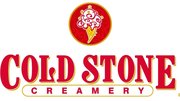News
Howard Schultz: Starbucks in early stages of growth
March 19, 2014
If Starbucks was a 20-chapter book, the company is only in chapter four or five, according to chairman, president and CEO Howard Schultz, who outlined Starbucks position in the marketplace today during the 2014 Annual Meeting of Shareholders.
"We're still in the early stages of the growth and development of Starbucks, we're delivering record profits and revenue, sharing our success with our partners and heading towards a $100 billion market cap," Schultz said.
With a 66-foot-wide backdrop of company stock symbols scrolling behind him, Schultz said there are more than 5,000 publicly listed companies on the New York Stock Exchange and NASDAQ. Of those, 150 have a market cap greater than $50 billion, he said as symbols on the ticker disappeared. Only 16 companies are increasing revenue by 10 percent or greater a year. Only 13 are growing earnings per share of at least 15 percent a year – including Google, Amazon, Facebook, Visa and Mastercard.
"Only one on the NASDAQ is a brick-and-mortar retailer with the unique combination of physical and digital assets to navigate the seismic changes in consumer behavior we witnessed this past holiday," he said. "Starbucks."
During today's annual meeting, the 22nd as a public company, Schultz acknowledged Starbucks record performance in fiscal year 2013. That includes record revenue of $15 billion and record profit of $2.5 billion. Starbucks returned $1.2 billion in cash to shareholders in the form of dividends and share repurchases, according to a company press release.
At a time when many companies are cutting benefits, Starbucks also invested in its partners (employees) by spending $250 million in healthcare benefits for eligible full and part-timers, sharing $234 million in pre-tax stock gains with partners, and matching $50 million in 401(k) contributions. Since the company started offering equity to partners in 1991, it has shared more than $1 billion in value in the form of stock with partners.
Schultz asked shareholders to consider the role and responsibility of a for-profit, public company.
"The world needs leadership now more than ever. I recognize we are not a perfect company, but we have a responsibility to use our scale for good," Schultz said. "The currency of leadership is truth and transparency. What we need now more than ever before is citizenship over partisanship."












